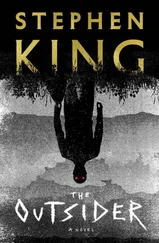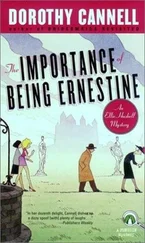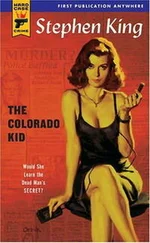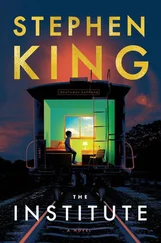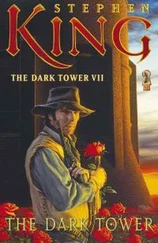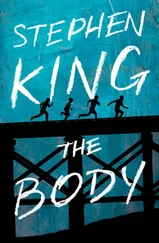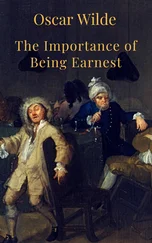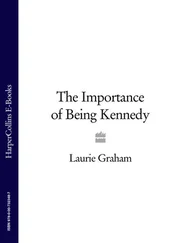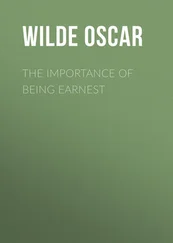Стивен Кинг - The Importance of Being Bachman
Здесь есть возможность читать онлайн «Стивен Кинг - The Importance of Being Bachman» весь текст электронной книги совершенно бесплатно (целиком полную версию без сокращений). В некоторых случаях можно слушать аудио, скачать через торрент в формате fb2 и присутствует краткое содержание. Жанр: Публицистика, на английском языке. Описание произведения, (предисловие) а так же отзывы посетителей доступны на портале библиотеки ЛибКат.
- Название:The Importance of Being Bachman
- Автор:
- Жанр:
- Год:неизвестен
- ISBN:нет данных
- Рейтинг книги:3 / 5. Голосов: 1
-
Избранное:Добавить в избранное
- Отзывы:
-
Ваша оценка:
- 60
- 1
- 2
- 3
- 4
- 5
The Importance of Being Bachman: краткое содержание, описание и аннотация
Предлагаем к чтению аннотацию, описание, краткое содержание или предисловие (зависит от того, что написал сам автор книги «The Importance of Being Bachman»). Если вы не нашли необходимую информацию о книге — напишите в комментариях, мы постараемся отыскать её.
The Importance of Being Bachman — читать онлайн бесплатно полную книгу (весь текст) целиком
Ниже представлен текст книги, разбитый по страницам. Система сохранения места последней прочитанной страницы, позволяет с удобством читать онлайн бесплатно книгу «The Importance of Being Bachman», без необходимости каждый раз заново искать на чём Вы остановились. Поставьте закладку, и сможете в любой момент перейти на страницу, на которой закончили чтение.
Интервал:
Закладка:
Stephen King
The Importance of Being Bachman
This is my second introduction to the so-called Bachman Books—a phrase which has come to mean (in my mind, at least) the first few novels published with the Richard Bachman name, the ones which appeared as unheralded paperback originals under the Signet imprint. My first introduction wasn’t very good; to me it reads like a textbook case of author obfuscation. But that is not surprising. When it was written, Bachman’s alter ego (me, in other words) wasn’t in what I’d call a contemplative or analytical mood; I was, in fact, feeling robbed. Bachman was never created as a short-term alias; he was supposed to be there for the long haul, and when my name came out in connection with his, I was surprised, upset, and pissed off. That’s not a state conducive to good essay-writing. This time I may do a little better.
Probably the most important thing I can say about Richard Bachman is that he became real . Not entirely, of course (he said with a nervous smile); I am not writing this in a delusive state. Except . . . well . . . maybe I am. Delusion is, after all, something writers of fiction try to encourage in their readers, at least during the time that the book or story is open before them, and the writer is hardly immune from this state of . . . what shall I call it? How does “directed delusion” sound?
At any rate, Richard Bachman began his career not as a delusion but as a sheltered place where I could publish a few early works which I felt readers might like. Then he began to grow and come alive, as the creatures of a writer ’s imagination so frequently do. I began to imagine his life as a dairy farmer . . . his wife, the beautiful Claudia Inez Bachman . . . his solitary New Hampshire mornings, spent milking the cows, getting in the wood, and thinking about his stories . . . his evenings spent writing, always with a glass of whiskey beside his Olivetti typewriter. I once knew a writer who would say his current story or novel was “putting on weight” if it was going well. In much the same way, my pen-name began to put on weight.
Then, when his cover was blown, Richard Bachman died. I made light of this in the few interviews I felt required to give on the subject, saying that he’d died of cancer of the pseudonym, but it was actually shock that killed him: the realization that sometimes people just won’t let you alone. To put it in more fulsome (but not at all inaccurate) terms, Bachman was the vampire side of my existence, killed by the sunlight of disclosure. My feelings about all this were confused enough (and fertile enough) to bring on a book (a Stephen King book, that is), The Dark Half . It was about a writer whose pseudonym, George Stark, actually comes to life. It’s a novel my wife has always detested, perhaps because, for Thad Beaumont, the dream of being a writer overwhelms the reality of being a man; for Thad, delusive thinking overtakes rationality completely, with horrific consequences.
I didn’t have that problem, though. Really. I put Bachman aside, and although I was sorry that he had to die, I would be lying if I didn’t say I felt some relief as well.
The books in this omnibus were written by a young man who was angry, energetic, and deeply infatuated with the art and craft of writing. They weren’t written as Bachman books per se (Bachman hadn’t been invented yet, after all), but in a Bachman state of mind: low rage, sexual frustration, crazy good humor, and simmering despair. Ben Richards, the scrawny, pre-tubercular protagonist of The Running Man (he is about as far from the Arnold Schwarzenegger character in the movie as you can get), crashes his hijacked plane into the Network Games skyscraper, killing himself but taking hundreds (maybe thousands) of Free-Vee executives with him; this is the Richard Bachman version of a happy ending. The conclusions of the other Bachman novels are even more grim. Stephen King has always understood that the good guys don’t always win (see Cujo, Pet Sematary, and—perhaps— Christine ), but he has also understood that mostly they do. Every day, in real life, the good guys win. Mostly these victories go unheralded (MAN ARRIVES HOME SAFE FROM WORK YET AGAIN wouldn’t sell many papers), but they are nonetheless real for all that . . . and fiction should reflect reality.
And yet . . .
In the first draft of The Dark Half, I had Thad Beaumont quote Donald E. Westlake, a very funny writer who has penned a series of very grim crime novels under the name Richard Stark. Once asked to explain the dichotomy between Westlake and Stark, the writer in question said, “I write Westlake stories on sunny days. When it rains, I’m Stark.” I don’t think that made it into the final version of The Dark Half, but I have always loved it (and related to it, as it has become fashionable to say). Bachman—a fictional creation who became more real to me with each published book which bore his byline—was a rainy-day sort of guy if ever there was one.
The good folks mostly win, courage usually triumphs over fear, the family dog hardly ever contracts rabies: these are things I knew at twenty-five, and things I still know now, at the age of 25 X 2. But I know something else as well: there’s a place in most of us where the rain is pretty much constant, the shadows are always long, and the woods are full of monsters. It is good to have a voice in which the terrors of such a place can be articulated and its geography partially described, without denying the sunshine and clarity that fill so much of our ordinary lives.
In Thinner, Bachman spoke for the first time on his own—it was the only one of the early Bachman novels that had his name on the first draft instead of mine—and it struck me as really unfair that, just as he was starting to talk with his own voice, he should have been mistaken for me. And a mistake was just what it felt like, because by then Bachman had become a kind of id for me; he said the things I couldn’t, and the thought of him out there on his New Hampshire dairy farm—not a best-selling writer who gets his name in some stupid Forbes list of entertainers too rich for their own good or his face on the Today show or doing cameos in movies—quietly writing his books gave him permission to think in ways I could not think and speak in ways I could not speak. And then these news stories came out saying “Bachman is really King,” and there was no one—not even me—to defend the dead man, or to point out the obvious: that King was also really Bachman, at least some of the time.
Unfair I thought then and unfair I think now, but sometimes life bites you a little, that’s all. I determined to put Bachman out of my thoughts and my life, and so I did, for a number of years. Then, while I was writing a novel (a Stephen King novel) called Desperation, Richard Bachman suddenly appeared in my life again.
I was working on a Wang dedicated word processor at that time; it looked like the visiphone in an old Flash Gordon serial. This was paired with a marginally more state-of-the-art laser printer, and from time to time, when an idea occurred to me, I would write down a phrase or a putative title on a scrap of paper and Scotch-tape it to the side of the printer. As I neared the three-quarter mark on Desperation, I had a scrap with a single word printed on it: REGULATORS. I had had a great idea for a novel, something that had to do with toys, guns, TV, and suburbia. I didn’t know if I would ever write it—lots of those “printer notes” never came to anything—but it was certainly cool to think about.
Then, one rainy day (a Richard Stark sort of day), as I was pulling into my driveway, I had an idea. I don’t know where it came from; it was totally unconnected to any of the trivia tumbling through my head at the time. The idea was to take the characters from Desperation and put them into The Regulators . In some cases, I thought, they could play the same people; in others, they would change; in neither case would they do the same things or react in the same ways, because the different stories would dictate different courses of action. It would be, I thought, like the members of a repertory company acting in two different plays.
Читать дальшеИнтервал:
Закладка:
Похожие книги на «The Importance of Being Bachman»
Представляем Вашему вниманию похожие книги на «The Importance of Being Bachman» списком для выбора. Мы отобрали схожую по названию и смыслу литературу в надежде предоставить читателям больше вариантов отыскать новые, интересные, ещё непрочитанные произведения.
Обсуждение, отзывы о книге «The Importance of Being Bachman» и просто собственные мнения читателей. Оставьте ваши комментарии, напишите, что Вы думаете о произведении, его смысле или главных героях. Укажите что конкретно понравилось, а что нет, и почему Вы так считаете.

